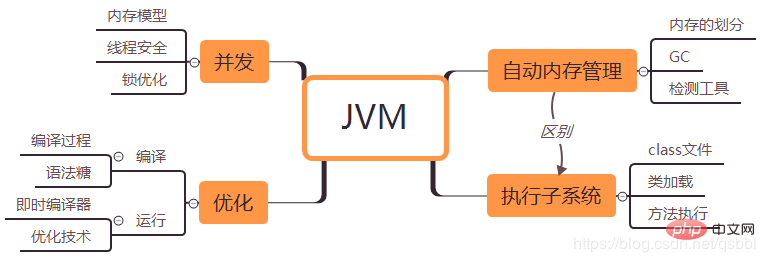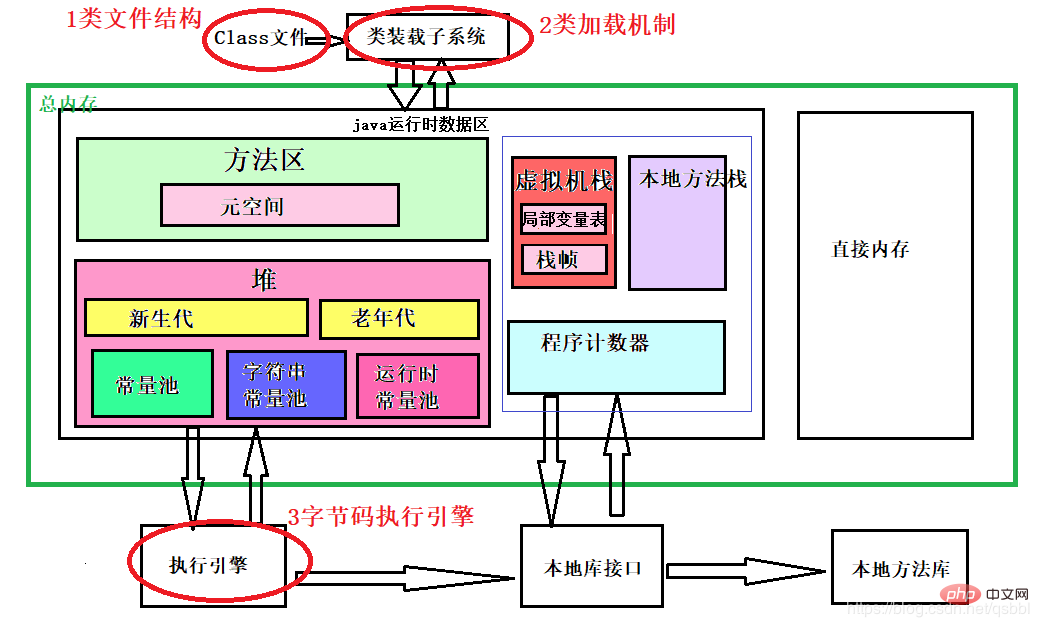Home >Java >javaTutorial >Detailed introduction to JAVA Virtual Machine (JVM) (1) - Overview of JVM
Detailed introduction to JAVA Virtual Machine (JVM) (1) - Overview of JVM
- 王林forward
- 2019-08-24 11:28:353315browse

First, explain the above four parts.
(1) Automatic memory management talks about the part in the Java runtime data area, which is divided into memory partitioning and garbage collector.
(2) The execution subsystem talks about the three parts circled in red: class file structure, class loading mechanism, and bytecode execution engine.
(3) Optimization is compile-time optimization and run-time optimization respectively.
(4) Concurrency talks about how virtual machines implement multi-threading.
The details can be seen in conjunction with the JVM structure diagram below. This picture is based on JDK7. Before JDK7, the constant pool was stored in the method area. Since JDK7, the constant pool has been placed on the heap.

This series of articles:
JVM (3)—Garbage collection mechanism
##JVM (5)—Class loading mechanism
JVM concept:
Let’s take a look at what JVM is and why there is JVM. JVM is a Java Virtual Machine (Java Virtual Machine), which implements the function of "compile once, run anywhere". If there is no JVM, when we write java code, if we want to run it on the Windows platform, we need to write a set of programs suitable for the Windows platform. If you want to run on the linux platform, write a linux one.
The above is the detailed content of Detailed introduction to JAVA Virtual Machine (JVM) (1) - Overview of JVM. For more information, please follow other related articles on the PHP Chinese website!

